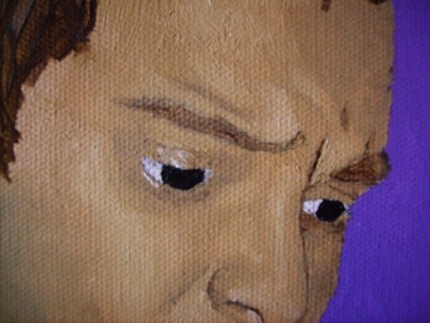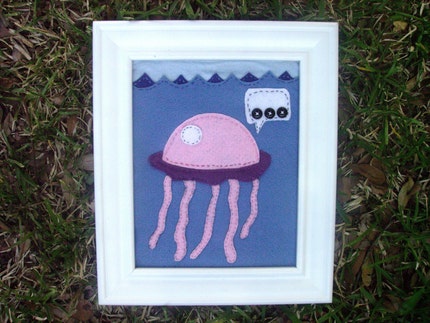
 "I will have thought." Things happened, happen, or will happen. But how can something will have happened? How can anything happen in the future and the past simultaneously - in the future-past? Thus is the future perfect tense.
"I will have thought." Things happened, happen, or will happen. But how can something will have happened? How can anything happen in the future and the past simultaneously - in the future-past? Thus is the future perfect tense.Stare at the future perfect for a while. Let it dissolve into its silly parts. Check out what surfaces. It's a gap. There's a small gap between what we say and what is.
Our language (spoken, written, and thought) builds a world for us, but it isn't necessarily the world around us. We often think of words as being permanently chained to their couterparts in reality. Is this really the case?
Try two things. First, make up a word. Make up a word for something that doesn't exist. Or think of the future perfect - a way of saying something that cannot be. Second, imagine something unknown that may exist but does not have a word for it yet (but leave it nameless). Or think of anything you know (like a stone, or a house) that only has a word that describes a group of things (like the word stone or house) but does not have a word (or name) to describe it individually.
The first thought tells us that there can be more words in our language than things to describe. However, the second thought tells us the opposite is true: that there are more things than words can name. Whats the point?
Well, I guess the point is... that there isn't one - that there can't ever be one. Not really, at least. The future perfect tells us that there is a tiny gap between what we say and what is. Is reality generally conveyed accurately in what we say, write, and think? Maybe, maybe not. The real question is: Can my world be represented perfectly by words and can words do their job perfectly? The answer has to be no. Words and the world they describe are not like me dancing in front of the mirror. It must be more like me dancing, and you imitating me. (Quick aside: we both think of 'dance' but are we thinking of the same dance?)
So is this a big deal? I honestly have no idea (yet). But it's out of that gap - that mystical little/huge gap between what is and how its said - that this painting came from. This is a painting of words without meaning and meanings without words, where they come to meet but don't match, from the non-existent future-past. This one was a painting of the gap between the thoughts of God and the words of men.






